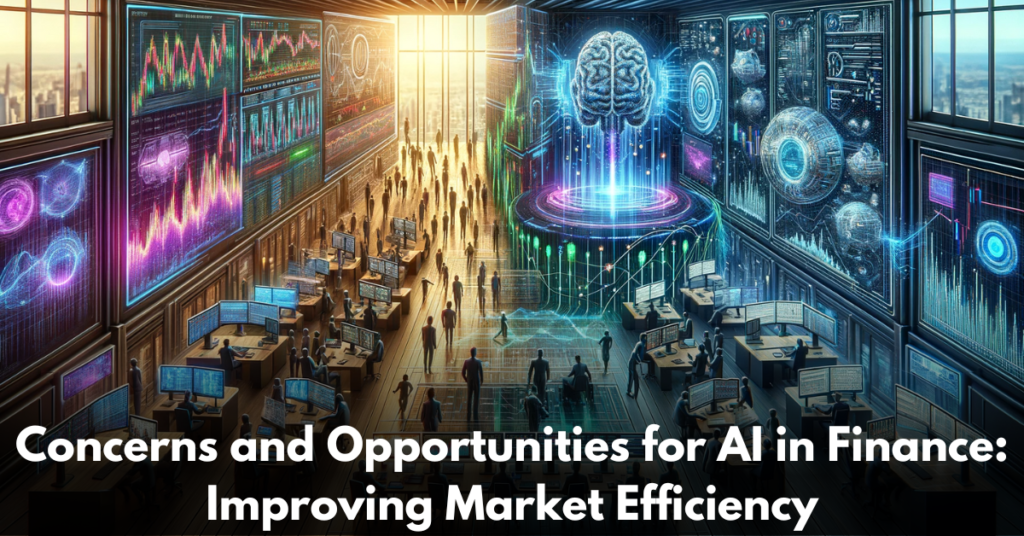Concerns and Opportunities for AI in Finance: Improving Market Efficiency
The growth of artificial intelligence (AI) in finance has led to discussions about the future roles of human portfolio managers and the viability of markets that work well. Eugene Fama proposed the efficient-market hypothesis in the 1970s, which contends that asset prices take into account all available information and make it impossible for investors to consistently outperform the market. In the 1980s, Robert Shiller disagreed with this view, saying that people’s irrationality causes market bubbles and waste.
Causes of Market Inefficiency
Market inefficiency can be caused by irrational behaviour or by special economic conditions that force smart investors to make choices that aren’t good for the market. Even though hedge funds and speculative companies might try to fix these problems, the GameStop incident shows that their own economic limits can lead to new price errors. Even though quantitative algorithms can do better than human traders, they still have flaws that can lead to inefficiencies, as the 2010 flash crash showed.
Issues related to algorithmic quantification
It is a big change that AI is being used in financial markets for things like machine learning, predictive analytics, natural language processing, sentiment analysis, and algorithmic trading. However, making people smarter doesn’t mean that the market as a whole will be smarter, and the financial markets may continue to reflect the irrationalities of the people who made them.
It is very important to think about clear communication in the age of AI and the possible risks that come with deepfakes. As AI continues to change the financial markets, it brings both good and bad things. Machine learning, predictive analytics, and natural language processing can all be used together to make decisions faster and more accurately. This makes the market more efficient. However, combining predictive analytics and automating processes is not as important.
AI in Financial Markets
Financial institutions should slowly start to use AI, and they should keep track of and evaluate the changes that happen, as well as set up internal teams and experts to plan for adoption and change. By taking this approach, they can make smart choices that will have fewer mistakes or bad outcomes. This way, they can use the benefits and potential of AI technology while lowering the risks that come with it.



